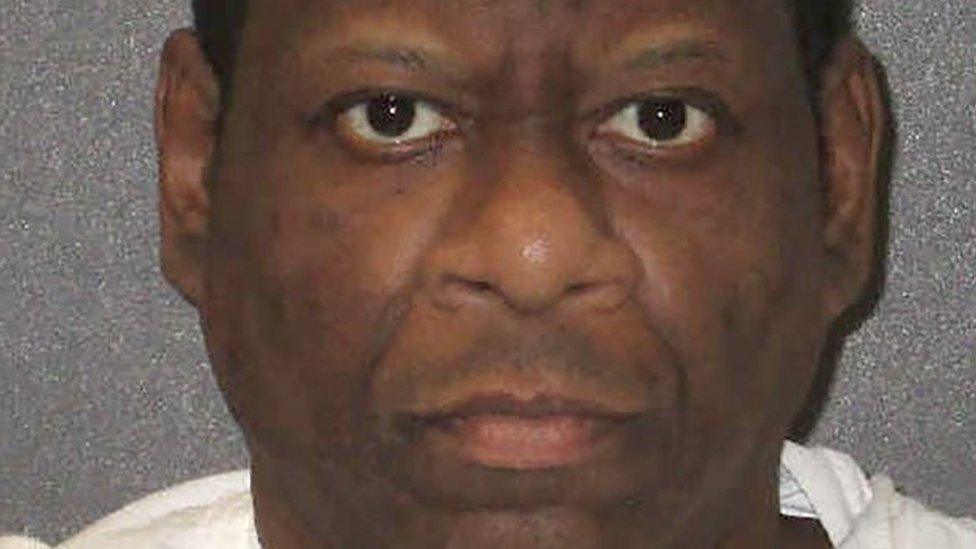US federal executions halted over 'potentially unlawful' method
- Published
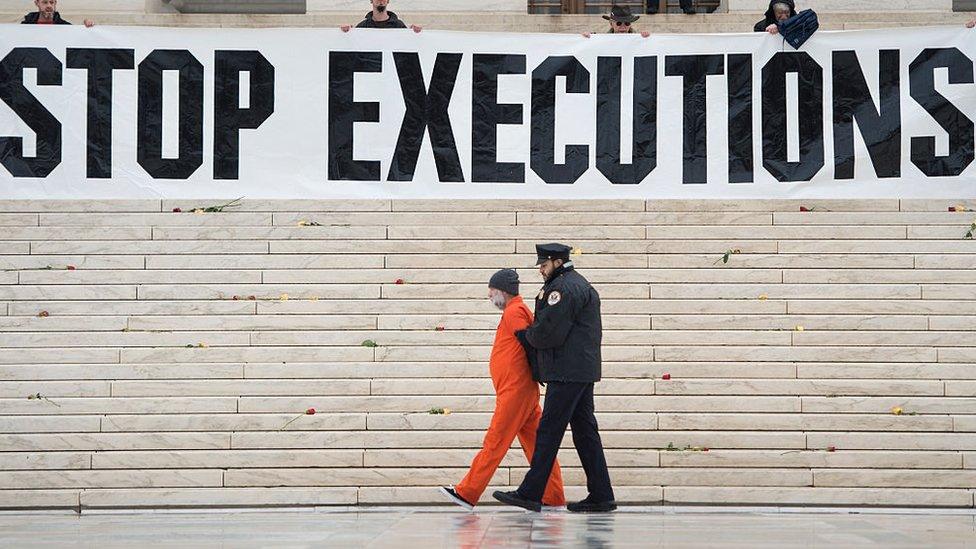
A 2017 protest against the death penalty in the US, where federal executions were ordered to be resumed in July
Federal executions in the US have been halted over concerns that the method of carrying them out may be unlawful.
Five men were due to be executed in Indiana in December and January, after the federal government earlier this year moved to resume executions.
But a judge ruled that four inmates' legal challenges to the method of execution were likely to succeed.
The execution of the fifth man was already halted in a separate court ruling last month.
On Wednesday, District Judge Tanya S. Chutkan said the four men would be "irreparably harmed" if they were to be put to death without being given the opportunity to have a court hear their case.
Their argument revolves around the lethal injection that would be used.
Attorney General William Barr's announcement earlier this year lifted an informal moratorium on federal executions - as opposed to state-directed executions - that had been in place since 2003.
That moratorium was in place because of a series of court rulings against the common method of execution, which involved a cocktail of three different drugs in the injections.
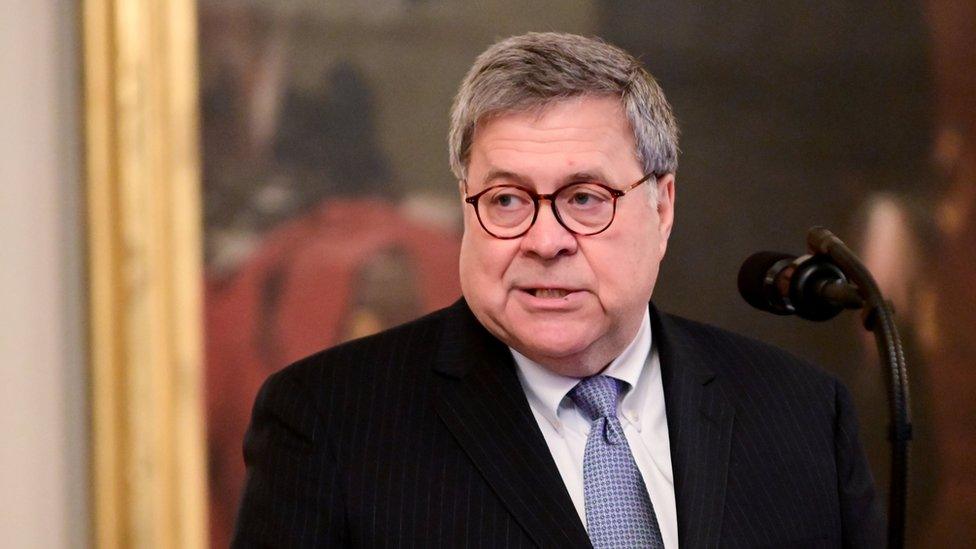
Attorney General William Barr lifted the informal moratorium on federal executions in July
In July, Mr Barr directed the Department of Justice to use a single drug instead - pentobarbital. The drug is a potent sedative that slows down the body, including the nervous system, to the point of death.
But in her ruling, Judge Chutkan said this would go against a federal law stipulating that death row inmates should be executed "in the manner prescribed by the state of conviction" - that is, using the same method that the particular state, in this case Indiana, uses for state-directed executions.
"The FDPA [Federal Death Penalty Act] provides no exceptions to this rule, and does not contemplate the establishment of a separate federal execution procedure," she said.
Federal and state executions - what's the difference?
Under the US justice system, crimes can be tried either in federal courts - at a national level - or state courts, at a regional level.
Certain crimes, such as counterfeiting currency or mail theft, are automatically tried at a federal level, as are cases in which the United States is a party or those which involve constitutional violations. Others are tried in federal courts based on the severity of the crimes.
The death penalty was outlawed at state and federal level by a 1972 Supreme Court decision that cancelled all existing death penalty statutes. A 1976 Supreme Court decision reinstated the death penalty to a number of states and in 1988 the government passed legislation that made the death penalty available again at a federal level.
According to data collected by the Death Penalty Information Center, 78 people were sentenced to death in federal cases between 1988 and 2018 but only three have since been executed. There are 62 inmates currently on federal death row.
29states where the death penalty is still a legal punishment
561executions carried out in Texas since 1976
2,673inmates currently on death row
733inmates on death row in California, but...
13executions actually carried out in California since 1976
85%- annual death sentences fell by this much from 1998 to 2018
- Published25 January 2024
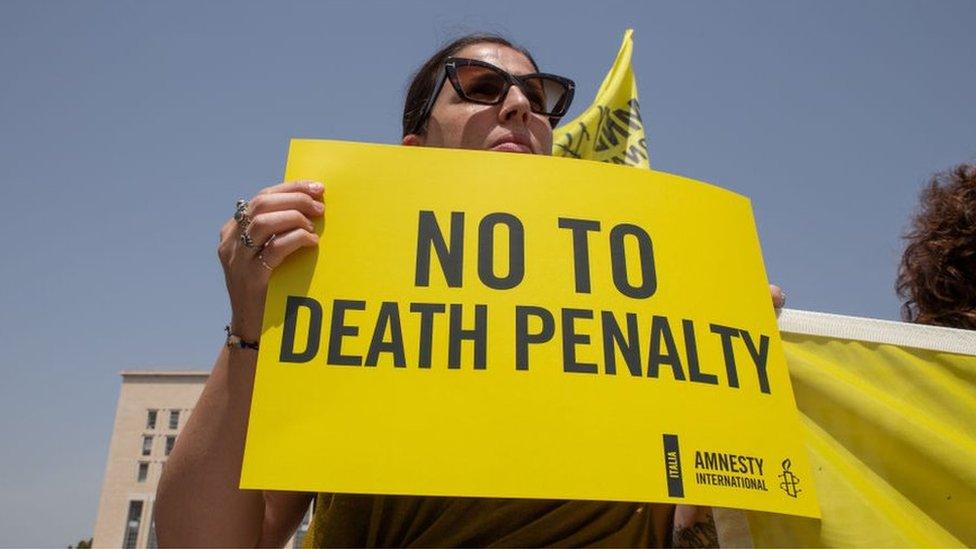
- Published26 July 2019
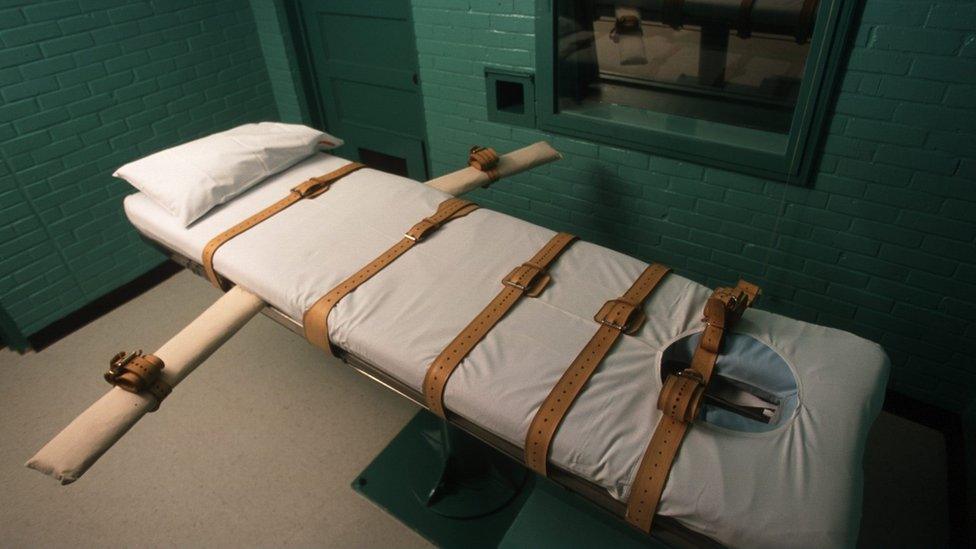
- Published16 November 2019
